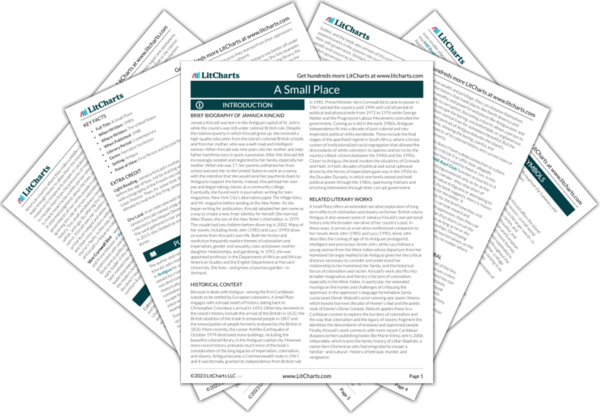Kincaid’s list continues, and she forces her readers to look at the mess of modern Antigua. Earlier, she said that the only way her rage over the history of colonialism, racism, subjugation, and exploitation could dissipate would be for colonialism, racism, subjugation, and exploitation never to have happened. As her list of corruption continues, she forces readers to acknowledge the truly astonishing degree of dysfunction in Antigua. And she offers continual reminders of the ways this dysfunction grows directly out of colonialism and slavery. Even the colonial authorities cannot escape the chaos that their selfish and immoral drive to rule the world has created. And even when foreigners try to help, they do so in ways that infantilize Antiguans and deprive them of control over the narrative of their own history.
